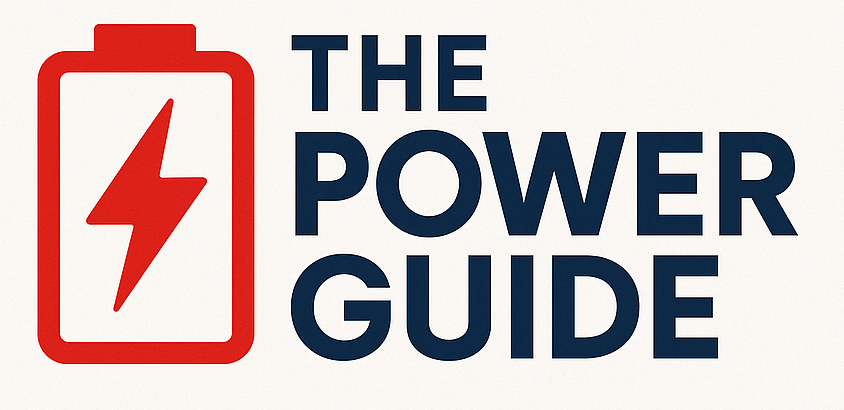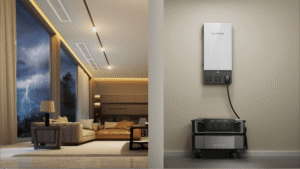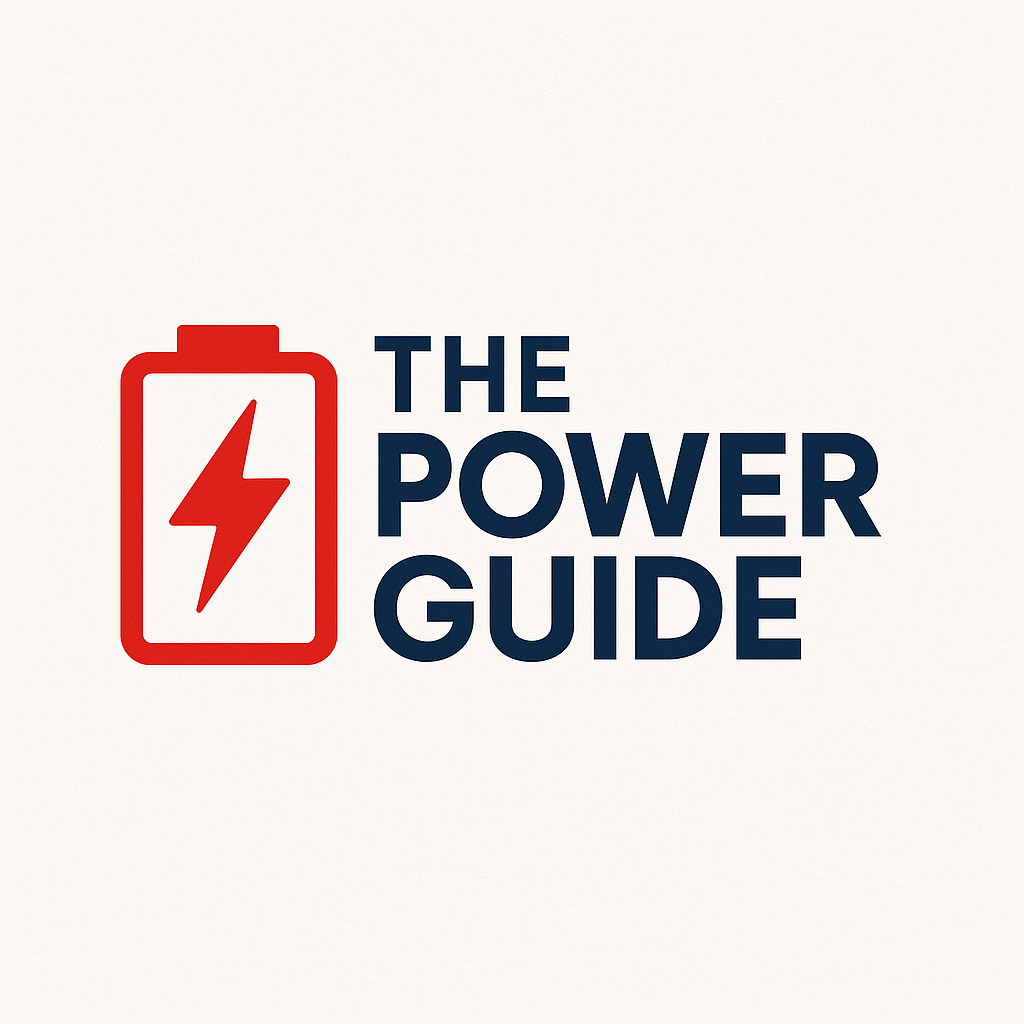The power’s out, your fridge is warming up, your phone battery is down to 10%, and the house is getting colder by the minute. Sound familiar? Power outages—whether from grid failures or severe storms—can quickly turn into major inconveniences. But it doesn’t have to be that way. In this guide, we’ll walk you through whole-house battery backup systems, explore their pros and cons, and help you find the right solution for your home and lifestyle.
How Does a Whole-House Battery Backup Solution Work?
A whole-house battery backup system is a reliable energy solution designed to keep your home powered during outages caused by storms or grid failures. When the main power supply is interrupted, the system automatically activates—ensuring your lights, appliances, and essential devices keep running without interruption.
Modern systems are equipped with smart technology, allowing you to monitor and manage your energy usage through connected apps, giving you full control from anywhere. These battery backups are built for long-term performance and efficiency, storing excess energy—often from solar panels—and delivering it precisely when you need it most.
Pros and Cons of Home Battery Backup
Pros
-
Lower Energy Bills
Home battery backups let you store energy when electricity rates are low—like at night—and use it during peak hours. This can lead to significant savings over time. -
Eco-Friendly
Unlike fuel-powered generators, battery backups are cleaner, quieter, and produce no emissions. They’re a sustainable way to power your home with less environmental impact. -
Energy Independence
Reduce or eliminate reliance on the grid. With a battery backup, you can keep the lights on during blackouts and have greater control over your energy supply. -
Smart Energy Management
Many systems include smart apps that track usage, optimize performance, and give you remote control over your power—putting energy management at your fingertips.
Cons
-
Maintenance Requirements
Batteries don’t last forever. They degrade over time and may need occasional maintenance to stay efficient. -
High Upfront Cost
Installation can be expensive. However, government incentives and rebates can help offset the initial investment. -
Limited Storage Capacity
Some systems can only power your home for a few hours or support limited appliances—especially during extended outages. -
Space Considerations
Battery systems need a clean, dry, and ventilated space. If you’re short on room, installation could be a challenge.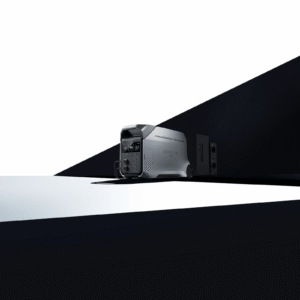
Benefits of a Home Battery Storage System
Energy Independence
Power outages from grid issues or unexpected storms are no longer a concern with a whole-home battery storage system like the EcoFlow DELTA Pro 3. Keep your essential appliances—fridge, Wi-Fi, air conditioning, and more—running seamlessly, no matter what’s happening outside.
Financial Incentives
Installing a home battery system can be more affordable than you think. The Residential Clean Energy Credit (formerly the Federal Tax Credit) allows you to claim 30% off the cost of purchase and installation. Adding solar panels makes you eligible for the same rebate, and many state and local programs offer additional financial support to reduce your upfront investment.
Pair With Solar & Join a Virtual Power Plant
Maximize your savings by combining your battery with a solar power system. Not only can you store excess energy, but with compatible setups, you can also sell unused power back to the grid by joining a Virtual Power Plant (VPP). It’s a smart way to turn surplus energy into real income instead of letting it go to waste.
Comparing Standalone and Solar-Plus-Battery Home Backup Systems
When choosing the ideal home battery backup, it helps to understand the differences between standalone batteries and solar-plus-battery setups:
Standalone Battery Backup:
Perfect for homes without suitable roof space for solar panels, standalone batteries provide reliable power by charging through the grid, an outlet, or even your vehicle. In the event of a power outage, your battery automatically kicks in to keep essential devices running. Many standalone systems also offer the flexibility to add solar panels later if you decide to expand your setup.
Solar-Plus-Battery Setup:
Pairing solar panels with a battery allows you to generate clean energy daily while charging your battery for emergencies or outages. Beyond backup power, this system lets you tap into stored energy during peak electricity times, potentially lowering your utility bills. Plus, you have the option to go completely off-grid, powering your home independently. The EcoFlow DELTA 3 Plus with its 220W Portable Solar Panel is a standout choice in this category, featuring a 5-year warranty for added peace of mind.
When designing your home backup system, think about your energy needs, budget, environmental goals, and how important uninterrupted power is for your household—whether for daily convenience or emergency preparedness.
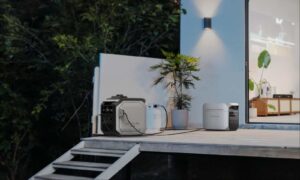
Frequently Asked Questions
Are Whole-Home Battery Backups Worth It?
Definitely! Whole-home battery backups keep your essential appliances running during power outages. Beyond providing energy independence, they can help reduce electricity bills and lower your environmental footprint.
Can I Power My Entire House With a Battery Backup?
Yes, but it depends on your battery’s capacity and your home’s energy demands. Smaller batteries typically support essentials like lighting and Wi-Fi, while larger or expandable systems can power major appliances, HVAC systems, and refrigerators. Choosing the right size is key for dependable whole-home backup.
How Long Will a Whole-Home Battery Backup Last?
It varies based on the battery’s size and your household’s energy use. Smaller systems might last a few hours, while bigger or modular setups can keep critical systems running for days. Adding solar panels can also recharge the battery during outages, extending backup time significantly.
Which Is Better: a Generator or a Battery Backup?
Generators provide reliable backup power but require fuel refills, regular maintenance, and produce emissions. Battery backups offer clean, quiet power without fuel concerns, help save money, and can be scaled up as needed—making them a more environmentally friendly and convenient option.
